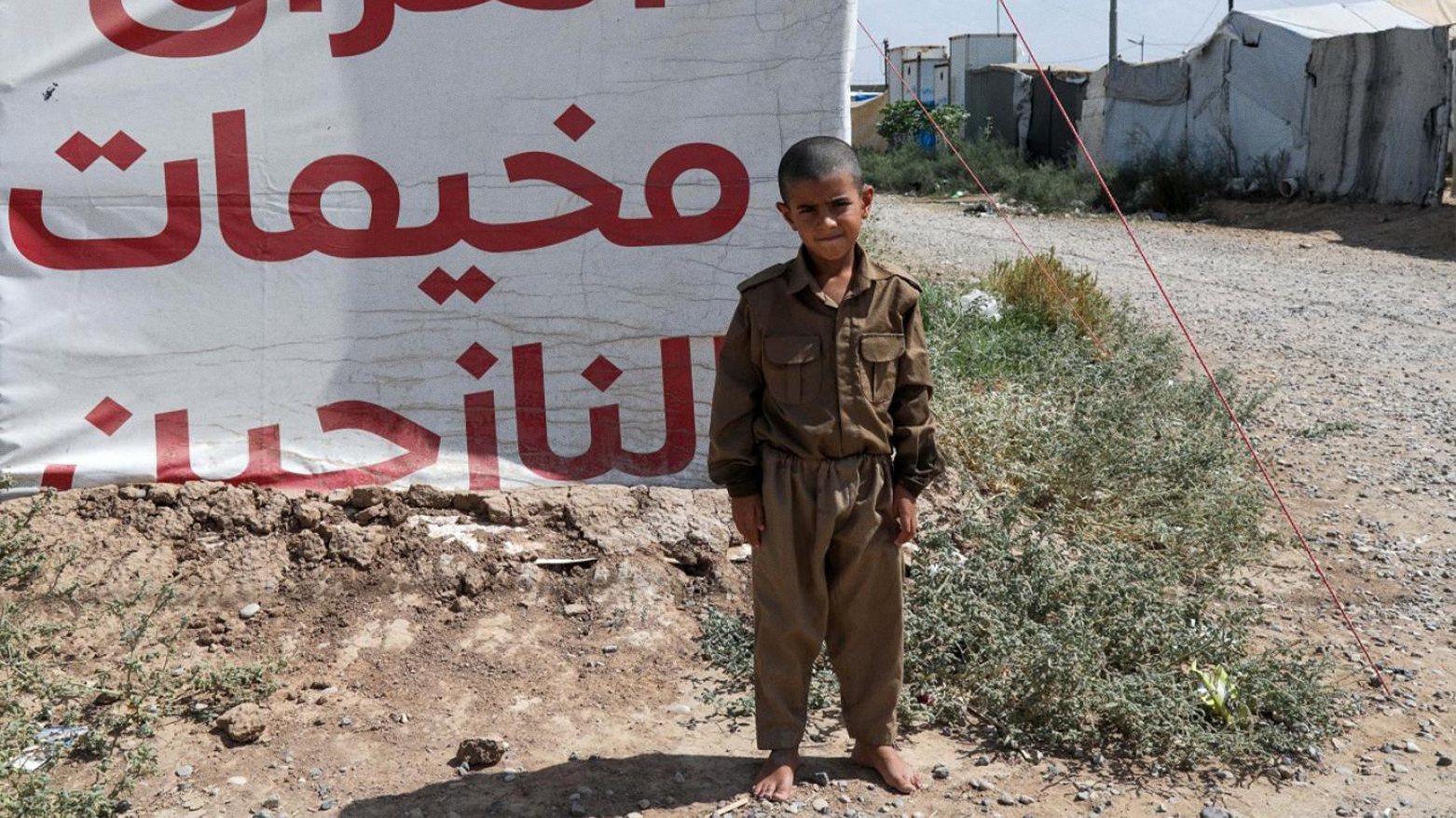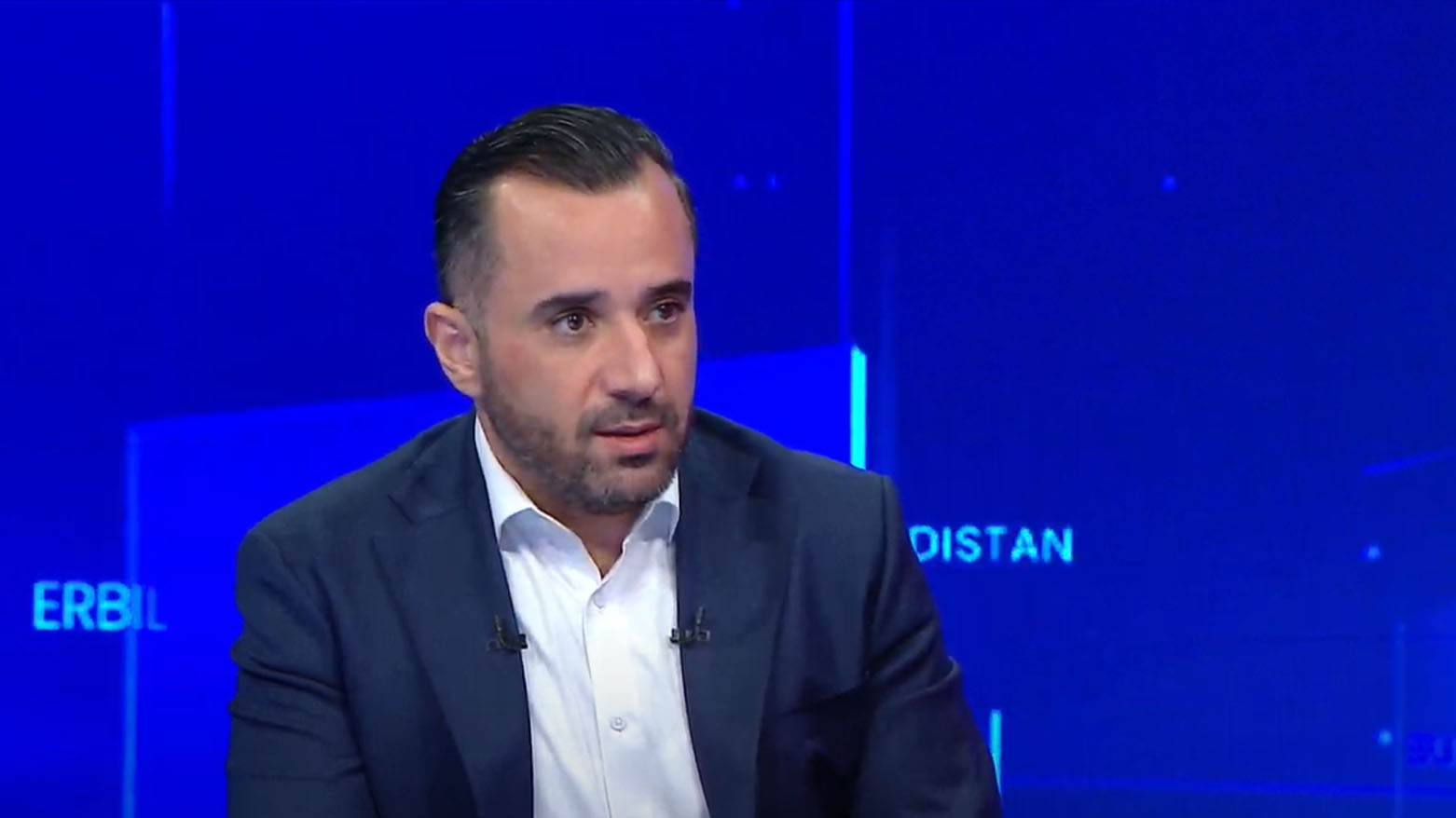MP Warns of 'Major Demographic Change' as KRG Accuses Baghdad of Obstructing Displaced Return
A Christian MP warns of demographic change as the KRG's Interior Ministry accuses Iraq's Minister of Migration of forcing displaced Christians and Yazidis to settle outside their ancestral lands, violating the constitution and international law.

ERBIL (Kurdistan 24) – A Christian parliamentarian has issued a stark warning that the Kurdistan Region faces a "major demographic change" if decisions by the Iraqi Ministry of Migration and Displacement regarding displaced ethnic and religious communities are allowed to continue. Speaking in an interview with Kurdistan24 on Thursday, Rami Nouri, a Christian Member of the Kurdistan Parliament, asserted that recent federal policies will have profoundly negative consequences, particularly for the Christian and Yazidi components who have sought refuge in the region.
Nouri’s cautionary words came on the same day the Kurdistan Regional Government’s (KRG) Ministry of Interior released a formal statement accusing the Iraqi Minister of Migration and Displacement of actively obstructing the return of displaced persons to their ancestral homes, a move the ministry described as an unconstitutional effort to engineer demographic shifts.
In his remarks to Kurdistan24, Member of Parliament Rami Nouri elaborated on the grave implications of the federal government's approach. "The decision of the Iraqi Ministry of Migration and Displacement regarding the components will have negative consequences and effects," he stated. "In the Kurdistan Region, it will lead to demographic change, because the Kurdistan Region has welcomed a large number of displaced people."

Nouri suggested the policy was not accidental, adding, "There is an intentional effort to harm the components, and the displaced should return to their ancestral lands voluntarily."
He highlighted the specific vulnerability of communities from the Nineveh Plain, a large portion of whom are currently residing in the Kurdistan Region. "For several years, efforts have been made to ensure that the Chaldean, Syriac, and Yazidi components do not remain in the area," he noted, concluding with the grave assessment that if this process persists, the region will inevitably face a significant demographic transformation.
Echoing and expanding upon these concerns, the KRG's Ministry of Interior on Thursday issued a strongly-worded statement condemning the actions of the Iraqi Minister of Migration and Displacement and the High Committee for Relief. The ministry accused them of working to deprive displaced individuals of the right to return to their homes and instead forcing them, without proper study or consultation, to become permanent residents in areas outside their native lands.
The statement opened by characterizing the federal initiative as "an unconstitutional development and contrary to the basic rights of citizens." It explicitly stated that the High Committee, under the minister's supervision, "has initiated the demographic change of the areas of the Christian and Yazidi components, whose original inhabitants are forced to live in camps."
Providing crucial context, the Ministry of Interior noted that since the war against ISIS, the Kurdistan Region has sheltered a vast number of displaced citizens, especially from Christian and Yazidi Kurd communities.
With the support of the people and government of the Kurdistan Region, alongside international agencies, 18 camps for the displaced remain operational. To date, more than 600,000 displaced people have been unable to go back, awaiting a secure and stable environment that would permit a safe and dignified return.
The ministry argued that instead of facilitating this voluntary return and contributing to a stable environment, the Iraqi Minister of Migration and Displacement is holding meetings aimed at preventing it.
The statement contends that forcing the displaced into "forced integration" in areas outside their ancestral lands creates a new demographic reality. This, the ministry asserted, is a form of illegal demographic change that violates multiple legal frameworks.
Domestically, it contradicts articles of the Iraqi constitution. Internationally, it runs contrary to the UN Guiding Principles on Internal Displacement, international humanitarian law, and the Geneva Conventions, all of which support the voluntary, safe, and dignified return of displaced persons and refugees, not their relocation through administrative decrees or unrealistic timelines.
In response to this situation, the Ministry of Interior put forth a series of urgent demands.
First, it called on the federal government to halt and refuse to implement the decisions of the Minister of Migration and Displacement.
Second, it appealed to the Special Representative of the United Nations and international organizations to work with the federal government to stop these decisions from being enacted.
Third, the ministry demanded an acceleration in the full implementation of the Sinjar Agreement, including the appointment of a new mayor and the commencement of reconstruction, normalization, and the provision of basic services in the district.
In its concluding remarks, the Ministry of Interior reiterated the KRG's unwavering position. It insisted on a legal solution to the problems, fundamentally tied to the "voluntary and dignified return of the displaced according to their own will and freedom." This includes ensuring their security, access to basic services, and the protection of their property now and in the future.
The ministry characterized the federal decisions as an "evasion of reality and the fundamental responsibility to solve the problems," arguing that a lasting solution cannot be achieved by sidestepping the correct path and failing to address the root causes of displacement.
